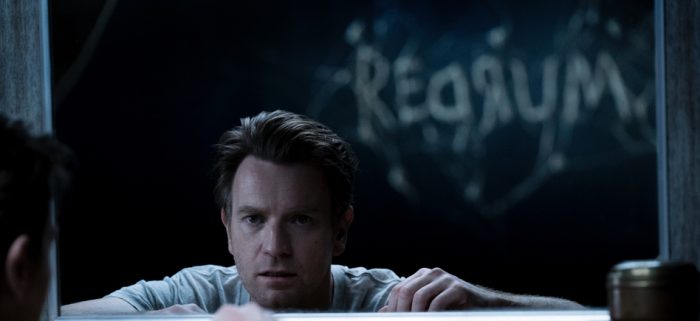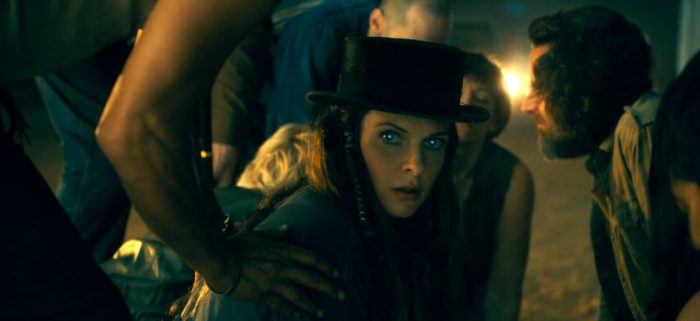‘Doctor Sleep’ Review: ‘The Shining’ Sequel Attempts to Reconcile the Conflicting Views of Kubrick and King
For all of the horrors he’s conjured up over the decades, Stephen King is really a big softie. Yes, he’s written stories about horrible, nightmarish things happening to innocent souls. But in the end, King is a writer who believes in humanity. He believes in hope. He believes in redemption. Which is probably why he was so damn furious when Stanley Kubrick adapted his novel The Shining into a film in 1980. Kubrick, brilliant artist that he was, was also the complete opposite of King. It’s unfair to claim – though many have – that Kubrick was a misanthrope with a disdain for humanity. But it’s fair to say that Stanley Kubrick’s movies were, all in all, unsentimental – an attitude that King has never ascribed to.
With all of this in mind, Mike Flanagan was facing an uphill battle when it came to adapting Doctor Sleep, King’s own sequel to The Shining, published in 2013. King’s Shining and Kubrick’s Shining share a basic framework, and several similar elements. But they’re vastly different works. And King’s Doctor Sleep is a sequel to his novel – not Kubrick’s film. What was Flanagan to do? Ignore one of the most talked-about horror movies of all time and stick with King’s text? Jettison King’s prose to remain true to Kubrick? Or find some sort of middle ground? With Doctor Sleep, Flanagan has opted for the third option. But can the diametrically opposed viewpoints of King and Kubrick truly inhabit the same space?
Young Danny Torrance (Roger Dale Floyd) and his mother Wendy (Alex Essoe) have escaped the haunted Overlook Hotel, leaving Danny’s demented, possessed father Jack to freeze to death in the hedge maze surrounding the land. Danny is still traumatized by the events that unfolded in the Overlook. He’s still haunted, too – and not in the figurative sense. The ghosts from the Overlook have managed to find him and track him down, using his psychic powers – his “shining” – as a lighthouse beacon. Danny needs a way to fight off those ghosts, and he finds one with a little help from an old friend.
Jump ahead some 30-odd years, and Danny is now Dan Torrance (Ewan McGregor), a man to hit rock bottom. Like his late, lamented father, Dan is an alcoholic, and his alcoholism has lead him down a dark, violent path. Drinking also helps him keep his shining at bay, but a startling wake-up call has him seeking both a change of scenery and a change of lifestyle. He hops on a bus, heads to New Hampshire, and ends up in AA with the little help of a new friend, Billy Freeman (Cliff Curtis). After a few rough years, Dan finally gets his shit together. But there are dark forces out there, and if he thought the ghosts of the Overlook were scary, he hasn’t seen anything yet.
After a super-quick flashback that takes us back to the Overlook – designed to look exactly as it did in Kubrick’s movie – Doctor Sleep settles into its own rhythm. Flanagan wisely chooses to not ape Kubrick’s shooting style, instead opting for his own, resulting in quick-cuts that pack in a lot of information. The film has a lot of ground to cover, and the first act is a whirlwind jumping through both time and place, giving us a crash-course in the many new characters Dan will soon come in contact with.
Out on the open road lurks the True Knot, a roving gang of nomadic psychic vampires who feed off the psychic energy of kids with the shining. Because Dan isn’t the only person in the world with this gift. In fact, according to Doctor Sleep, there are folks with the shining all over the world. One of them is young Abra Stone (Kyliegh Curran), a kid who’s psychic abilities are off the charts. Abra’s super psychic powers catch the attention of True Knot leader Rose the Hat (Rebecca Ferguson), and she’ll do anything to get her hands on the young girl and suck the life out of her. Abra is going to need to some help battling Rose and her gang, and that’s where Dan – and his shining – come in.
For a large chunk of its narrative, Doctor Sleep remains fairly faithful to King’s novel. It doesn’t have to deal with the ramifications of Kubrick’s Shining because so much of the story has absolutely nothing to do with the events of that film. Doctor Sleep occupies a completely different world, and it’s one Flanagan is comfortable in. Over the years the filmmaker has built up a filmography of horror that blends deeply emotional, redemptive elements. Perhaps the best example is his Netflix adaptation of The Haunting of Hill House, which was as much about empathy and forgiveness as it was about things that go bump in the night.
Doctor Sleep shines brightest in these human moments. The awkward friendship between Dan and Abra is charming, thanks primarily to Curran’s winning, likable performance. She’s a ray of sunshine in a frequently bleak movie, and she and McGregor have an easy-going rapport. McGregor, for his part, underplays Dan, bottling up his emotions the way Dan has bottled up the ghosts from his past. But the actor is wonderful in tender moments – moments like when Dan, who has taken a job at a retirement home, sits with dying residents and calmly guides them over to the other side.
Despite its warm heart, Doctor Sleep doesn’t skimp on the horror. The film packs in several nightmarish moments, many of them involving endangered children. The center of all that horror is Rose, and it’s fair to say that Doctor Sleep fully belongs to Rebecca Ferguson and her delightfully wicked performance. Ever since her big breakout role in Mission: Impossible – Rogue Nation, Ferguson has been in dire need of a part that lets her flex her acting muscles. And this is it. Ferguson’s Rose is all seductive smiles and slinky sex appeal coupled with deadly poison. Her grin is wide yet her eyes are two balls of burning hate. She’s utterly detestable in her actions, and yet like many of the characters in the film, we can’t resist her allure.
For most of its runtime, Doctor Sleep succeeds by building its own identity and staying far away from Kubrick’s film. As wise and sensible as this decision is, it also leads to complications. After forging its own path, Doctor Sleep spends its entire final act revisiting old haunts. This leads to Flanagan throwing out his own directing style and attempting to mimic Kubrick. Entire shots are lifted directly from Kubrick’s Shining, and while Flanagan manages to make them look almost identical, there’s an uncanny valley quality to what we’re seeing. Yes, it’s technically correct – but something seems off. These moments are meant to hold a mirror up to Dan’s traumatic past, but they only remind us of how different everything in the movie has been up until this point – and how different King’s world is from Kubrick’s.
This realization threatens to throw Doctor Sleep completely off track, but it’s not able to diminish the haunting humanity that Flanagan has managed to splash across the screen. Many filmmakers have adapted Stephen King, and a large amount of them neglect to zero in on what it is that makes the Master of Horror’s work so special: his compassion. Unflinching, unapologetic compassion that shines through all the cold, violent darkness. Mike Flanagan understands that, and so does Doctor Sleep. And as a result of this, Doctor Sleep shines on.
/Film Rating: 8 out of 10
The post ‘Doctor Sleep’ Review: ‘The Shining’ Sequel Attempts to Reconcile the Conflicting Views of Kubrick and King appeared first on /Film.
from /Film https://ift.tt/2qaJZxR
via IFTTT


Comments
Post a Comment